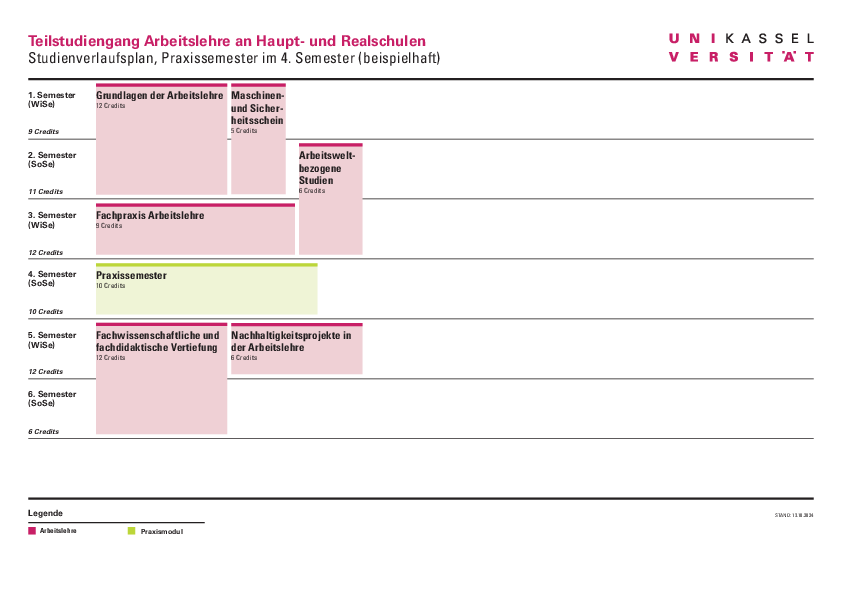Study structure
The content on this page was translated automatically.
The standard period of study for the partial degree course in Work Studies is six semesters, plus one semester of examinations. Students acquire skills and competencies in subject didactics and the related disciplines of work studies.
The partial study program "Work Studies" is completed by a second teaching subject (of your choice) as well as the study components of the core study program in education and social sciences.
